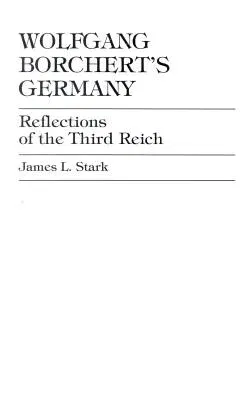James L Stark
(Author)Wolfgang Borchert's Germany: Reflections of the Third ReichPaperback, 30 December 1996

Qty
1
Turbo
Ships in 2 - 3 days
In Stock
Free Delivery
Cash on Delivery
15 Days
Free Returns
Secure Checkout

Part of Series
Studies in Continental Thought (Paperback)
Print Length
184 pages
Language
English
Publisher
University Press of America
Date Published
30 Dec 1996
ISBN-10
0761805559
ISBN-13
9780761805557
Description
Product Details
Author:
Book Format:
Paperback
Country of Origin:
US
Date Published:
30 December 1996
ISBN-10:
0761805559
ISBN-13:
9780761805557
Language:
English
Location:
Lanham, MD
Pages:
184
Publisher: